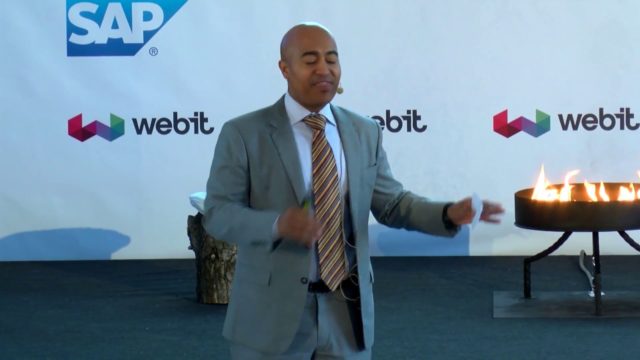Travis LeBlanc, former Chief of Enforcement Bureau at the Federal Communications Commission
Free Internet access – a thing available at the click of a mouse or a tap on a screen for most people. But in the not so far future this wasn’t the case. An open and free Internet access still isn’t the case in a number of countries around the world. Though the UN has proclaimed Internet access as a human right.Privacy, Security and Internet of This, That & Tomorrow
Nowadays almost all newly launched companies rely heavily on the Internet ecosystem
This trend carries numerous possibilities with it, combined with numerous unknowns too. The number of connected devices is constantly increasing. This includes not only our smartphones but any IoT devices ranging from connected vehicles through surveillance systems to our hairbrush.
The IoT boom certainly provides benefits – creating smart devices, managing energy efficiency, forecasting needed repairs or whatever need it is. But at the same time carrying a number of threats with it. There have been cases as hackers obtaining personal data from institutions, taking control on connected cars and even being able to reach to a person’s pacemaker. All this serves as an example reminding us how insecure the devices we so heavily rely on are.
Three years ago, the Federal Communications Commission has issued regulations to prevent broadband Internet service providers from controlling the access that consumers have to the Internet, from choosing which websites and apps we can use – basically, from choosing the winners and losers on the Internet. It has also taken measures in order to protect broadband privacy, to ensure that consumers know what particular information about them is collected from these providers, what do they do with it and to prohibit them from selling the consumers’ information without their consent.
Recently though, these regulations have been reversed
Service providers are able to sell consumers’ information such as browsing history, apps downloaded, location, etc. to the highest bidder, be it the government, marketers or certain bad actors. That is enough scary of a concept by itself, having in mind how much information is contained in the smart devices we use daily.
Governments and regulators should proceed from the point that everything can be hacked. At some point, it’s very likely to happen and prompt measures need to be taken to prevent or at least minimize the harm. This concerns all companies creating products and services for the market. Security and privacy issues need to be considered from the start of developing a certain product. They should not be left for figuring out after the process has finished and the damage has already been done.
If you want to stay tuned with evolving security & privacy matters, the Webit.Festival 2018 in Sofia gathers some of the world’s pioneers on the subject.
